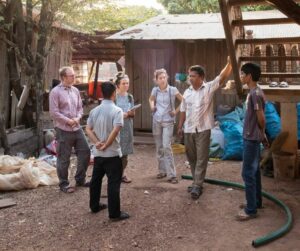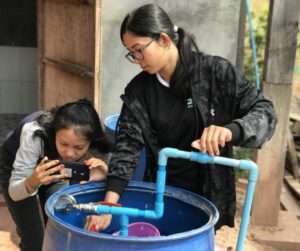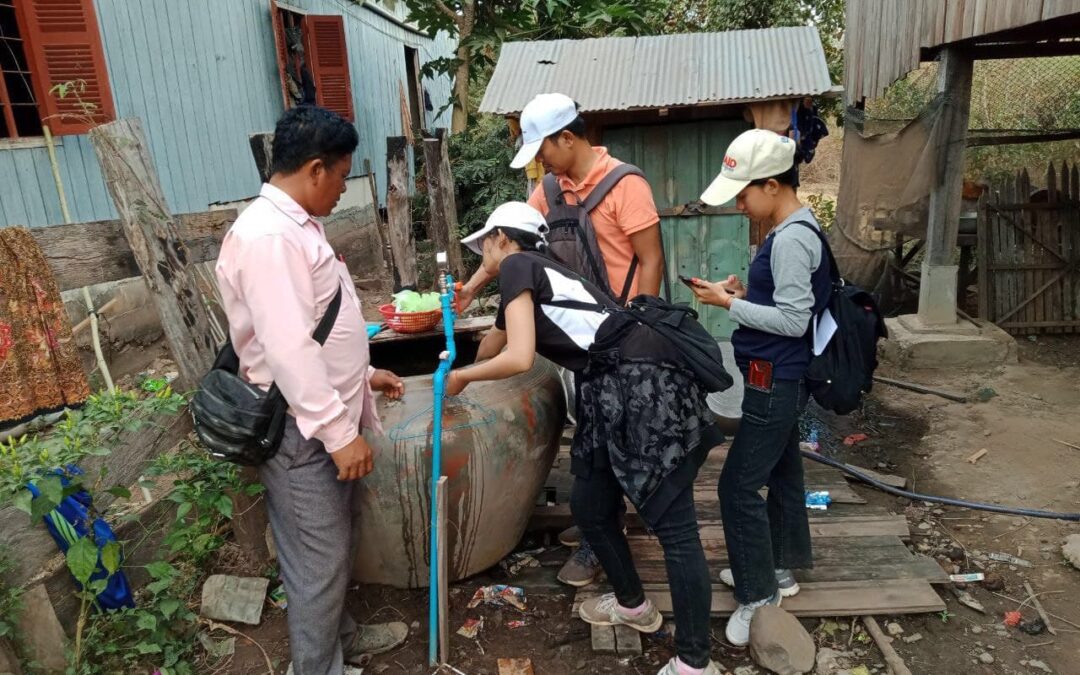The Mekong River is the lifeblood of Southeast Asia. As one of the longest rivers in the world, it flows through six countries – including Cambodia, where it is home to thousands of people who live in villages not far from its banks. These communities access the river’s water directly – for bathing in, and for drinking its water. This water supply however is of low quality, because of the high level of turbidity, the presence of animal and human faeces, traces of pesticides and other hazards. This results in a poor quality of life for these residents and negatively impacts their health and wellbeing in a number of ways. EWB has been working with Cambodian Rural Development Team (CRDT) on a water rehabilitation project, so 839 families across five villages in Kratie Province have sufficient access to safer, cleaner water.
Within these five villages live 3,853 people, and women comprise 50% of this population. Each day, women (as well as their children) bear the main responsibility to head to the river to collect water for their families. This puts them at significant risk of illness due to poor water quality. Women and children also spend at least half an hour travelling each time they fetch water from the river. This has a particular impact on children, as this means time away from their education.
A review of the challenges

Speaking with Village Water Committee in Ksach Leav
In March 2019, a team of engineering professionals from Australian and New Zealand visited Kratie Province as part of EWB’s Sustainable Development Intensive program. They worked alongside CRDT to review existing Rural Water Supply (RWS) systems. These systems had been installed three years prior, and were designed to pump river water to water towers, which then supplied water to each village through gravity-fed PVC pipe networks. These systems aimed to supply clean, safe water for household consumption. They were also used for home garden irrigation in order to support family livelihoods by growing their own nutritious food, as well as for income generation. Three community water groups were created in order to manage, maintain and repair the systems. But less than 10% of households were connected and using it.
The engineering team identified a number of technical issues with the system – supply capacity and weak pressure, storage challenges, damage to pipework (both within the household and the distribution infrastructure), unreliable power supply, the pumping of untreated water and the high cost of installation were some of the key challenges of the existing system.
Australian Volunteer Professionals supporting water rehab
With the research completed and the challenges identified, EWB and CRDT are now commencing the next phase of this project. This phase is being supported remotely by two EWB Australian Volunteer Professionals – Kasey Williams, an Environmental Engineer based in Newcastle, and Stephanie May, a Civil Engineer based in Rwanda.

Chanrika (left) and Mariny (right) from the EWB Australia Cambodia team assess water pressure
This phase is critical, as it aims to strengthen the technical and professional skills of the local community involved in the day-to-day use and management of the system. As part of this next phase, CRDT staff, local authorities and water management committees are gaining skills in leadership, management, maintenance and operations of the system, in order to provide appropriate solutions for their communities. In addition, a pilot project will also be implemented to rehabilitate one of the systems, to test, monitor and evaluate its effectiveness, as a pathway to rehabilitating the entire system.
The project responds to the objectives of the Cambodian government’s National Action Plan, which has a goal to ensure 100% access to improved rural water supply and sanitation in rural areas by 2025.
This program is supported by the Australian NGO Cooperation Program (ANCP) and generous donors.
You can support impactful projects like these here!


